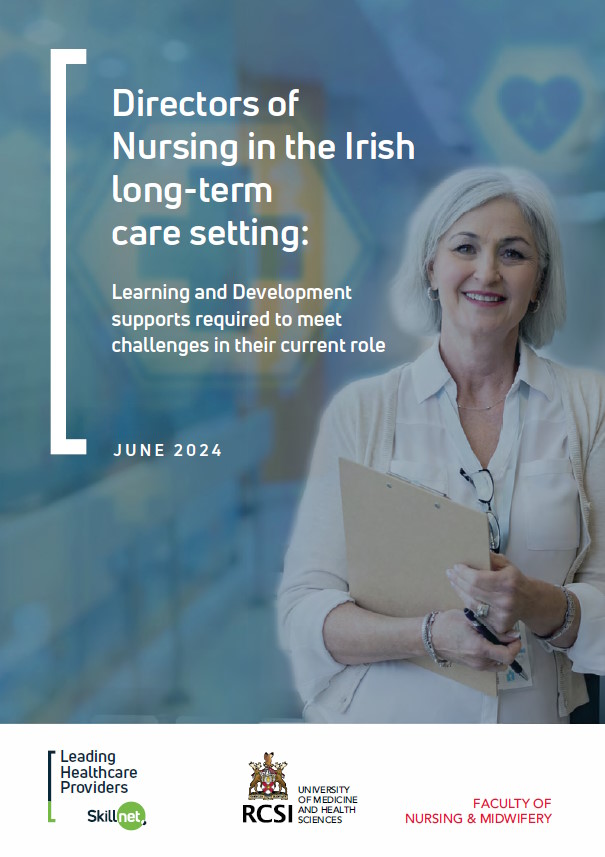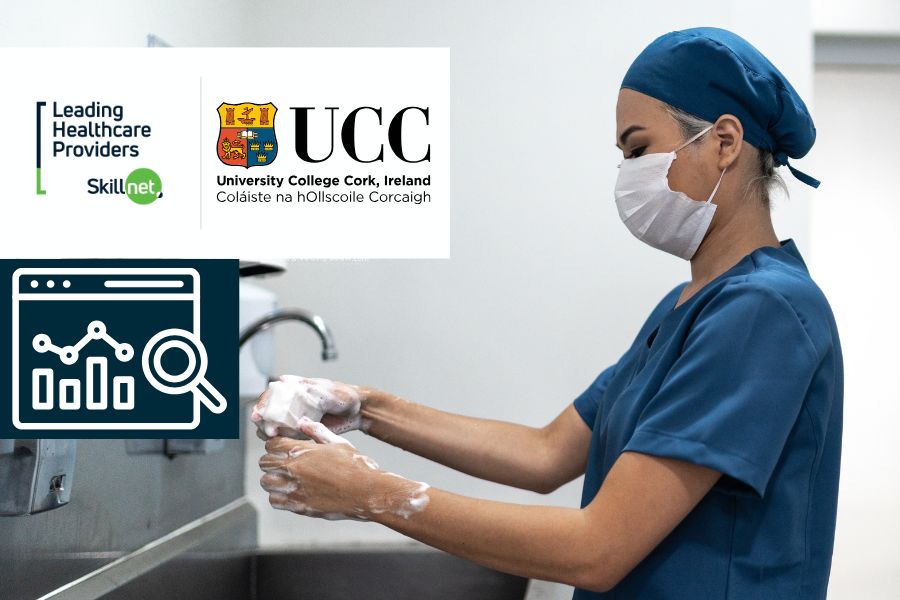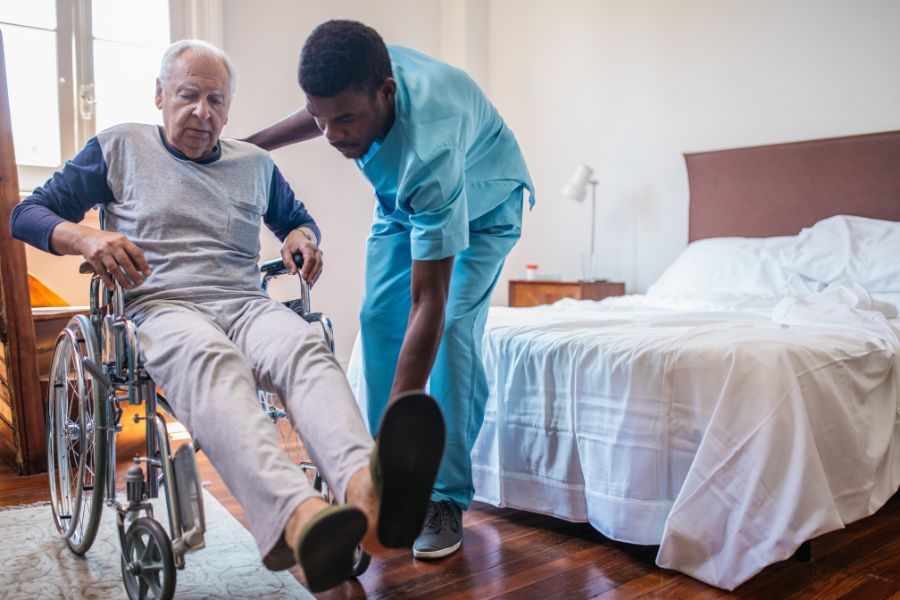by Clodagh Killeen
Share

by Clodagh Killeen
Share
Directors of Nursing in the Long-Term Care Sector in Ireland
Learning and Development Supports Required to Meet Challenges in Their Current Role
LHP Skillnet are delighted to publish our recent report on the challenges faced by Directors of Nursing (DONs) in Long-Term Care and what supports can be put in place to retain, attract and provide ongoing learning and development supports within their role.
Background
A research report from the Trinity Centre for Practice and Healthcare Innovation published in 2022 found “that almost one fifth (19%) of Directors of Nursing were actively seeking other work, while a further 28% admitted to thinking of leaving their post.”1
1 Phelan, A., Daly., L., Coffey, A., Kent, S. Naughton, C. Tuohy D., Ryan, A. and Byrne M. (2022) Experiences of Directors of Nursing in Preparing for and Managing COVID-19 in Care Homes for Older People. School of Nursing and Midwifery, Trinity College Dublin, pg. 11 PDF access: https://www.tcd.ie/tcphi/assets/pdf/experienceofdons-carehomes-covid.pdf

Supports For a Challenging Role
19% of DONs were seeking other work; a further 28% thought of leaving their post.
Further research was required to explore what supportive measures could be put in place to retain DONs, address current challenges, and enhance the working environment, in particular education, training and development supports.
The purpose of this study was to highlight the barriers, identify the learning and development supports required for the DONs in their role, and provide key recommendations for the provision of education and training for DONs to enhance their ability to fulfil their role.
This independent study was commissioned by LHP Skillnet with funding provided by Skillnet Ireland; it was carried out by the Royal Collage of Surgeons in Ireland.
Methods
This was a mixed methods cross-sectional observational study of DONs and assistant directors of nursing (ADON) in the private LTC sector. Participants were asked to complete an online survey, looking at demographic information, work environment, The Maslach Burnout Inventory, Nurse Manager Work Environment scale, the Utrecht Work Engagement scale and intention to leave. This was followed by one-to-one semi-structured interviews with DONs. The interviews also included nursing home owners and Health Information and Quality Authority (HIQA) representatives.
Findings
There were 246 responses to the anonymous online survey. Almost half the respondents reported feeling emotionally drained from their work at least once a week and almost 70% felt they were working too hard on their job at least once a week. On a positive note, however, most participants reported ‘I can easily create a relaxed atmosphere with my recipients (residents)’ and over 70% stated ‘I have accomplished many worthwhile things in this job’ at least once a week. This was supported in the one-to-one interviews in which DONs voiced that in the main they loved their role and were very passionate about it, however the challenges they faced made the role very difficult and took a toll on other aspects of their life.

Cross-Sectional Observational Study
Our methodical online survey yielded 246 responses; six key recommendations were identified.
The interviews centred on understanding the experience of DONs as well as nursing home owners’ and HIQA representatives’ perspectives of the role of the DON, main challenges and supports required for DONs in the long-term care setting and their vision for the future of the LTC sector. A total of 16 one-to-one semi-structured interviews were conducted using three main broad themed questions. The focus of these were on challenges, supports, and the vision for the future.
Six key recommendations for action were identified. These apply to registered providers, education and training providers, industry representatives/support groups, policy makers, and those involved in strategic workforce planning.
Conclusion
This study underscores the crucial role of the DON, given the increased ageing population seeking LTC with more complex dependency needs and the resourcing required.
Read the Full Report

“Aleo, G., Walsh, N., Pagnucci, N., Kearns, T., Fitzgerald, C. (2024). Directors of Nursing in the Irish long-term care setting: Learning and Development supports required to meet challenges in their current role.
https://www.lhpskillnet.ie/publications/research-report-on-dons-in-the-long-term-care-sector-in-ireland
Click on the button below to download the research report in PDF format.
A Competency-Based Evaluation of a Postgraduate Certificate in Infection Prevention and Control (2020-2023) Lessons From a Landmark Initiative in Education Infection prevention and control (IPC) is one of the most fundamental pillars of safe...
A Standardised Induction Programme for Home Support Workers in Irish Home Care Launching Our New Research Report The Irish healthcare landscape is evolving rapidly. With one of the fastest ageing populations in the European...
This 5-day programme is aimed at providing participants with the knowledge and skills required to care for older individuals in diverse healthcare settings. Successful completion earns a Foundation Certificate in Gerontological Nursing, with 33...








